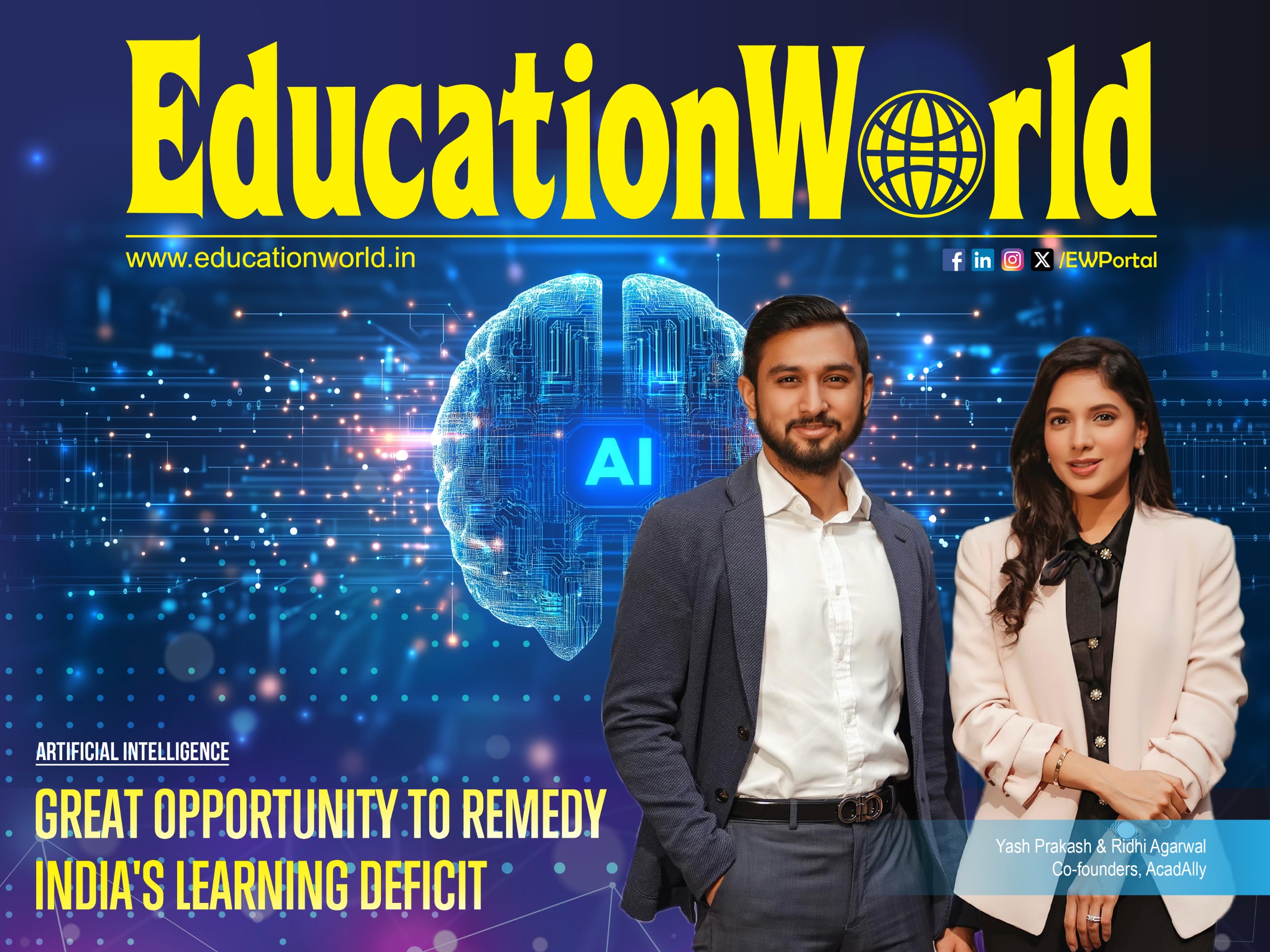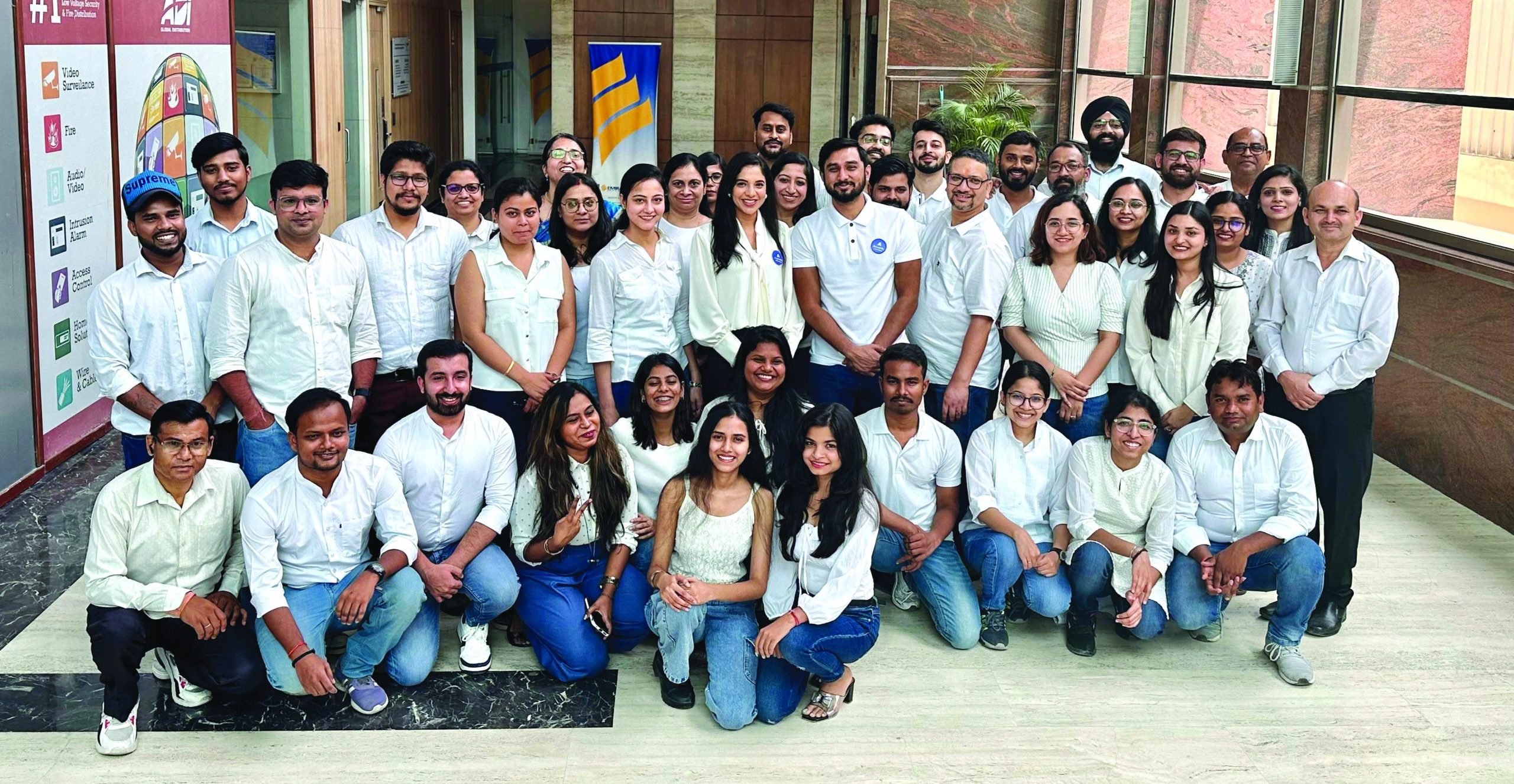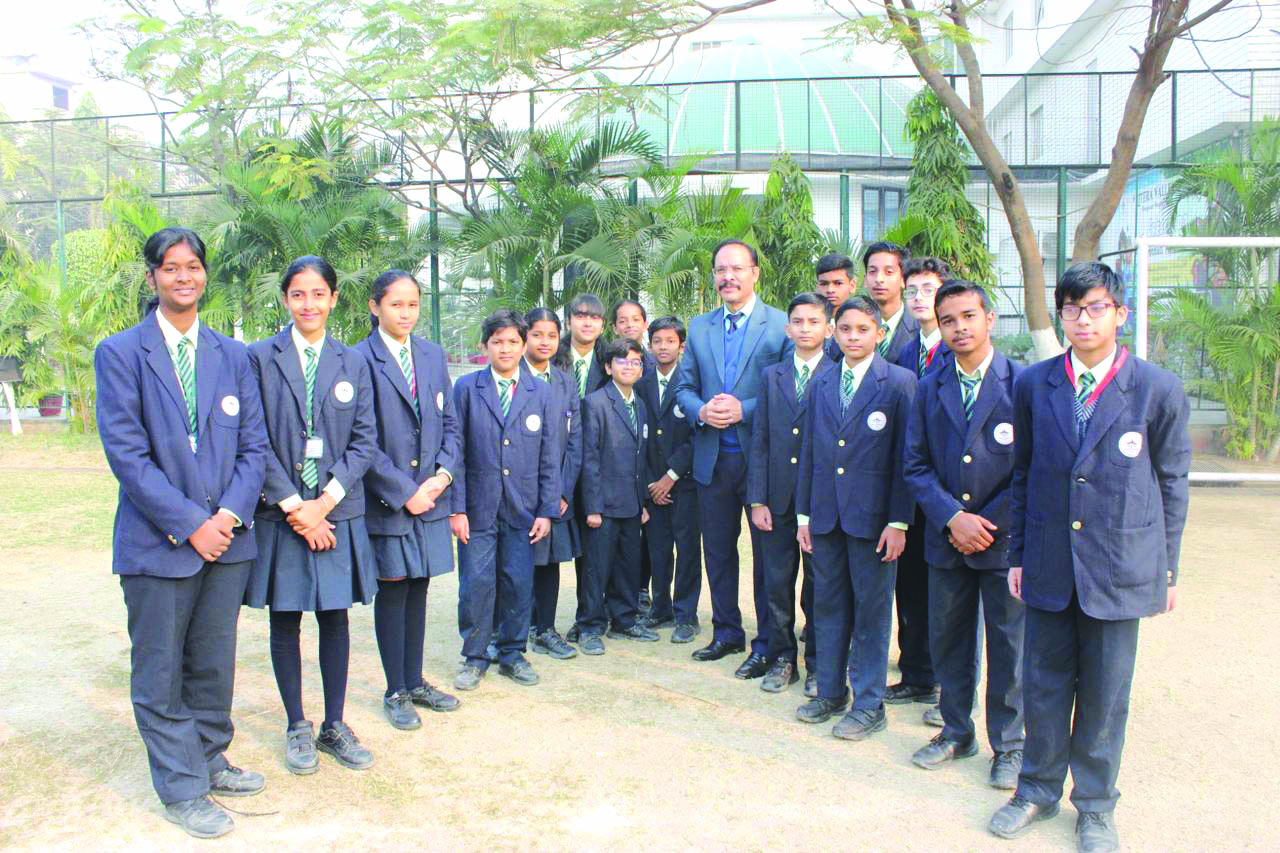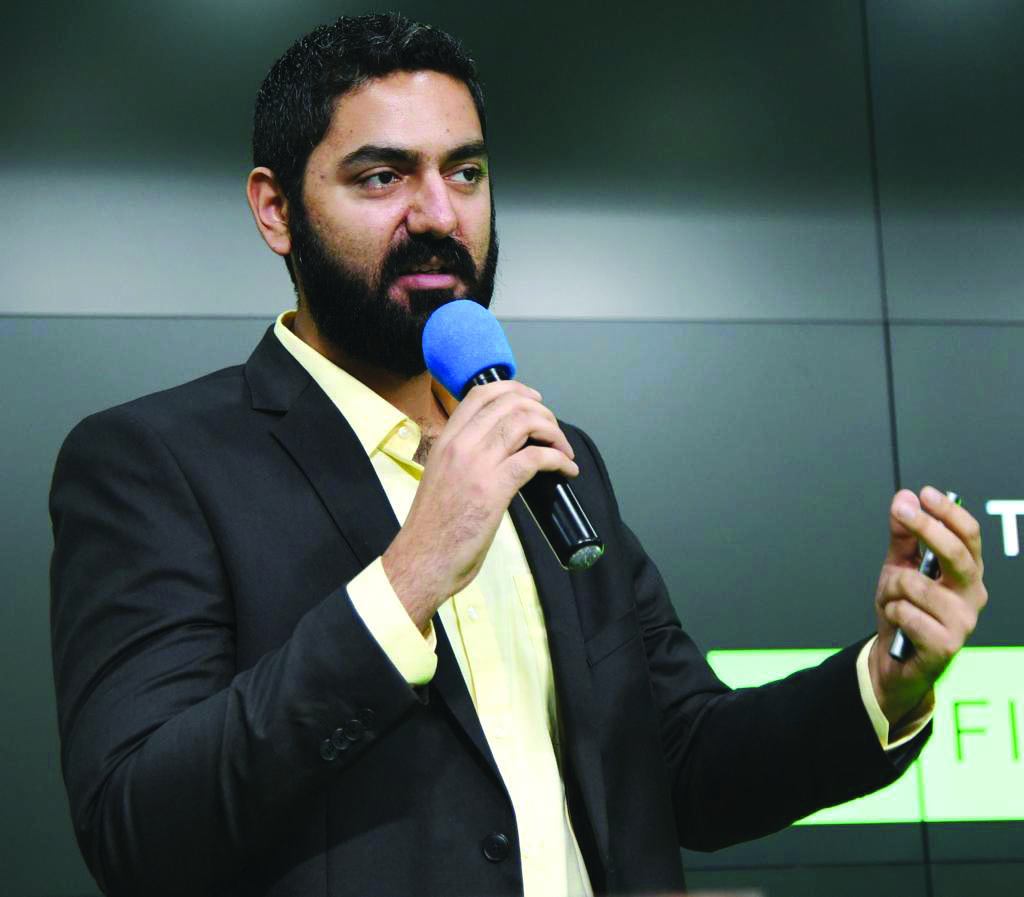Most educators agree that if used carefully and intelligently, AI has massive potential to radically impact education by improving teaching practices and student learning outcomes, writes Ditsa Bhattacharya & Summiya Yasmeen.
- Last March, edtech company Maker Labs installed India’s first artificial intelligence (AI) teacher robot named Iris in the KTCT Higher Secondary School, Thiruvananthapuram, to “redefine the learning landscape and push the boundaries of what’s possible in education”.
- On November 11, the Punjab and Haryana High Court issued notice to the top-ranked O.P. Jindal Global University, Sonipat, to respond to a petition filed by a student for quashing a university committee’s decision that declared him ‘fail’ for submitting “AI-generated” answers in a term-end exam. The university’s Unfair Means Committee had accused Kaustubh Anil Shakkarwar, a Master of Laws (LLM) student of its Jindal Global Law School, of submitting “88 percent AI-generated” responses.
AI, the new ICT (information communication technology) breakthrough — defined as “simulation of human intelligence in machines that are programmed to think, learn, and solve problems in a manner similar to how humans do” (ChatGPT) — is the buzzword in schools, colleges and universities worldwide. While some academics welcome AI programs for their potential to customise learning, automate administrative tasks and enable speedy access to content and knowledge, others are voicing concern about capability of generative AI apps such as ChatGPT, Gemini, and Meta AI to upend well-established teaching-learning traditions, destroy data privacy, and torpedo academic integrity by driving students towards automated solutions.
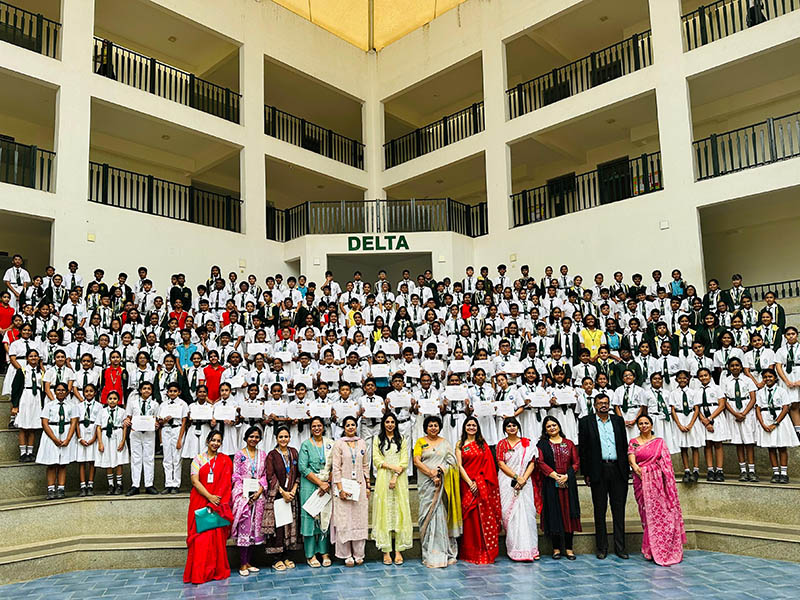 Nevertheless, most educators agree that if used carefully and intelligently, AI has massive potential to impact education positively by improving teaching practices and student learning outcomes. In its publication Artificial Intelligence in Education (2024), Unesco says, “AI has the potential to address some of the biggest challenges in education today, innovate teaching and learning practices, and accelerate progress towards the United Nation’s SDG (sustainable development goal) 4” i.e, enabling inclusive and equitable quality education.
Nevertheless, most educators agree that if used carefully and intelligently, AI has massive potential to impact education positively by improving teaching practices and student learning outcomes. In its publication Artificial Intelligence in Education (2024), Unesco says, “AI has the potential to address some of the biggest challenges in education today, innovate teaching and learning practices, and accelerate progress towards the United Nation’s SDG (sustainable development goal) 4” i.e, enabling inclusive and equitable quality education.
“AI will transform education in two fundamental ways. First, every teacher can now have a personal teaching assistant that will assist her in tracking the learning of every child in her class and recommend lesson plans to improve her learning. Simultaneously, AI will enhance teacher performance by discharging day-to-day tasks and routines and free up teachers to teach. Second, AI will discharge the duties of a personal tutor and guide every child or teacher in a personalised manner, respond to questions both big and small, and provide instant feedback to course-correct and improve. All this in real-time. Therefore, AI is a game changer; it will overhaul learning and education. But like all technologies, educators and students need to use it intelligently and responsibly,” says Pramath Sinha, the highly accomplished former partner at McKinsey & Co, USA, founding dean of the blue-chip Indian School of Business, Hyderabad and founder-trustee of Ashoka University, Sonipat. Recently (2018), Sinha promoted Harappa Education, an online learning platform (since acquired by UpGrad) and has transformed into a AI in education evangelist (see interview p.25).
The term ‘artificial intelligence’ was first used at a 1956 workshop at the Ivy League Dartmouth College, USA, to describe the science of manufacturing “intelligent machines, especially intelligent computer programs”. During the following decades, AI developed in fits and starts, with periods of rapid progress interspersed with winters of inaction. Meanwhile definitions of AI multiplied often becoming entangled with the philosophical questions of what constitutes ‘intelligence’ and whether machines can ever really be as ‘intelligent’ as humans. Currently, the world is experiencing an AI renaissance, with an ever-increasing range of industries and corporates adopting AI with the hope of spurring a productivity leap forward.
According to ICT pundits, there are three main types of AI — Artificial Narrow Intelligence (ANI), Artificial General Intelligence (AGI), and Artificial Super Intelligence (ASI). Goal-oriented ANI enables ICT systems to discharge specific tasks such as content generation, prediction or classification based on data. ANI powers much of the technology we interact with daily — Google Assistant, Alexa, Siri, and Google Translate. Generative AI (ChatGPT) is a subset of ANI focused on generating new content (images, text, or music) based on directed commands.
Next level AGI utilises computer power to assimilate abstract data to provide solutions. It integrates published data and human cognition into software, enabling AGI powered programs to provide data and knowledge analysis-based solutions. Artificial Super Intelligence (ASI) is the pinnacle of AI development: computers are invested with intellectual capacity greater than of average human beings.
According to Dr. Venunadhan B. Pillai, a Kollam-based education consultant to IB and Cambridge-affiliated schools, the “dramatic emergence of these three distinct categories of AI is set to make a significant impact on the future of school curricula and the way students prepare for careers”. “In several countries, schools are already integrating ANI-powered teaching assistants and personalised learning platforms to sharply improve students’ learning outcomes. Tools such as Alexa for Education and Google’s AI-powered grading systems are discharging routine tasks of teachers and drawing up personalised learning paths for students based on individual learning assessments, enabling teachers to provide personal attention to every learner. A government school in Kerala has recently introduced Alexa in the classroom for minor instructional purposes. Iris, India’s first AI-generated saree-clad school teacher robot, has also been unveiled in a school in the state,” wrote Dr. Pillai in a recent (June 2024) essay for EducationWorld (https://www.educationworld.in/preparing-students-for-the-new-ai-age/).
Particularly after the prolonged Covid pandemic education lockdown during which all learning moved online, there’s been a steady rise in the number of schools using AI to automate the administrative tasks of teachers such as marking attendance and timetabling. This has dramatically improved teacher productivity and efficiency. AI programs for student assessment and recommendation of remedial lessons have also become popular with educators. TeamLease Edtech’s report Revolutionising Classrooms: The Impact of Generative AI on the Future of Education (2024) says that 64.87 percent of the 6,313 educators interviewed countrywide acknowledge AI’s potential in “transforming learning experiences and enabling personalised education”.
To meet rising demand for AI products and services in education, a new genre of AI-focused edtech companies have sprung up worldwide and in India. Using AI technologies these companies are innovating products/apps that customise learning programs to improve the learning outcomes of every child, automate teachers’ administrative tasks, and offer supplementary education through audio-visual content, while tracking every student’s progress. A promising AI edtech company is AcadAlly (estb.2022) which has designed a breakthrough Learning Engine for Assessments and Progress (LEAP) program that uses AI to improve student learning outcomes.
“AcadAlly’s prime objective is to remedy every student’s learning deficit and improve her learning outcomes by providing AI-enabled remedial solutions. LEAP uses AI to assess every child’s learning deficit through real-time assessment and recommends remedial action to her teacher. We also provide AI-generated learning and gamified content to facilitate teaching. Detailed dashboards are created for every child to enable principals, teachers and parents to monitor her progress to make informed decisions and to provide remedial programs for laggard children. Our mission is to free and empower teachers to teach and improve the learning outcomes of every child,” says Ridhi Agarwal, an alumna of the Shri Ram College of Commerce and Delhi School of Economics who co-founded AcadAlly in 2022 together with Yash Prakash, an engineering graduate of Southampton University, UK and management postgrad of Illinois Institute of Technology, Urbana-Champaign, USA.
According to Prakash, since AcadAlly launched its LEAP program last March, there’s been enthusiastic feedback from principals and teachers of over 30 partner schools. “School leaders and teachers have welcomed AI as it offers never-before real-time assessment of every child in every subject to determine her learning deficit. Based on instant assessment, AcadAlly suggests remedial action to teachers to provide customised remedial education to every child. Simultaneously, automation of teachers’ routine admin tasks allows educators to focus on what they do best — teaching and mentoring. AcadAlly provides teachers with actionable information and support that improves teaching efficiency. Over the past two years AcadAlly has improved students’ learning outcomes in partner schools by an average of 65 percent. The fear that AI will replace teachers is unfounded as remedial education and mentoring has to be provided by human teachers. AI cannot replicate the emotional intelligence, guidance, and inspiration provided by live teachers,” says Prakash (see interview p.27).
Desmond Jude D’Monte, principal of the CBSE-affiliated Litera Valley School, Patna, confirms that far from fear of losing their jobs, there’s “tremendous enthusiasm” within the teachers’ community about introducing AI in their classrooms. “In today’s digital age where learning deficit feedback is instant enabling customised learning programs, teachers and students are enthused about using AI in classrooms. Application of AI in education has precipitated a shift from one-size-fits-all teaching to customised education. For instance, since we started using AcadAlly, our teachers have been able to identify every student’s learning deficit in every subject and customise lesson plans for struggling students while providing stimulating and enriched learning pathways for gifted children. Instant feedback on their learning gaps has also enabled our students to self-correct and self-direct their learning. AI has also saved teachers precious time from attending admin duties and thus improving their teaching efficiency” says D’Monte.
According to Manju Balasubramanyan, principal of the CBSE-affiliated Delhi Public School, Bangalore North, which has an enrolment of 7,500 students and 450 teachers, one of AI’s greatest benefits is instant, real-time student assessment. “Through automated MCQ-type questions AI enables real-time assessment and identification of the learning deficit of every child. Thereafter AcadAlly recommends individualised programs for remedial education. This is invaluable for teachers who can use this data to prepare customised learning paths for students to improve their learning outcomes,” says Balasubramanyan.
Balasubramanyan believes that fear about AI replacing teachers is unwarranted. “Technology constantly upgrades itself making learning and knowledge acquisition more convenient and accessible. ChatGPT is an improved version of Google Search. But even as technology evolves teachers will remain a constant in K-12 education. The pandemic made us aware that teachers are irreplaceable and that children learn and grow best in the school environment,” she adds.
The potential of AI to precipitate a great productivity leap forward not just in education but in all sectors of the economy, has prompted India’s premier national school examination boards, Central Board of Secondary Education (CBSE), which has 30,480 affiliated schools and Council for Indian School Certificate Examinations (CISCE) with 2,891 affiliated schools, to introduce AI as a subject in the curriculum. CBSE introduced AI in the academic year 2019-20 as a sixth optional subject for class IX-XII students and in 2023-24 as a ‘skill subject’ for class VI-XII students. CISCE is all set to introduce robotics and AI as study subjects for classes XI and XII students from the start of academic year 2025-26.
According to Unesco, which released a AI Competency Framework for Students Report last September, India is one of 15 countries worldwide which has included AI learning in its national curriculum framework. The National Education Policy (NEP) 2020 mandates all exam boards and schools countrywide to introduce AI and coding in the curriculum in class XI “to equip students with the necessary skills to participate in the digital economy and prepare them for the jobs of the future”.
Some forward-looking schools have pre-empted CBSE and CISCE by establishing full-fledged AI labs to give their students a head-start in becoming acquainted with new-age AI technologies which have the potential to engineer a great leap forward in business, health and agriculture sectors.
Last April, the top-ranked Mayo College, Ajmer (estb.1875), became India’s first primary-secondary to inaugurate an AI Applied Lab christened the Human Centric Centre of Excellence for AI and Robotics, on its sprawling 183-acre campus. “Our AI Lab hosts latest computers with AI software and curriculum provided by Dataviv Technologies, a company founded by Stanford University alumni. We are also collaborating with IBM to introduce courses in machine learning, AI, and blockchain management for our students. AI is increasingly being applied in all sectors of the economy with a multiplying number of job roles necessitating usage or interaction with AI. Therefore it’s critical to teach children AI theory and practice. Our AI Applied Lab enables children to learn to build AI systems to be prepared for workplaces of the future,” says Saurav Sinha, an alum of Delhi University and London Business School and principal of Mayo College.
Vedant Ahluwalia, the Mumbai-based promoter-CEO of Dataviv Technologies Pvt. Ltd, which has built Mayo College’s Applied AI Lab, reiterates the importance of equipping students with AI competency. “AI technologies such as machine and deep learning are radically transforming all sectors of the economy including education. In Dataviv, our objective is to introduce the latest AI technologies in the critically important education, health and agriculture sectors. In education, we are committed to making children and youth proficient in understanding, creating and using AI. In Mayo College’s Applied AI Lab, children from class IV onward are engaged in hands-on learning to build AI models using our specially designed software and latest algorithms. It’s very encouraging that Mayo students have successfully completed advanced AI projects within a year of setting up this lab. If our children and youth have to be prepared for the future, they need hands-on learning to become generators and contributors to the AI revolution rather than remain mere consumers,” says Ahluwalia, a highly qualified computer science grad of Rochester and Stanford universities who served as an associate at the White House during President Obama’s tenure followed by short stints at Coursera, Systems Trading and the UNDP before returning to India in 2022 to promote Dataviv. Dataviv’s target is to establish 100 Applied AI Labs in education institutions across the world within the next 12 months.
While NEP 2020 has mandated the inclusion of AI study in school curriculums and some progressive schools such as Mayo College (and DPS, Bangalore North) have taken the lead in introducing it as a curricular subject, there’s widespread ignorance within the teachers’ community about AI and its potential to revolutionise teaching-learning in K-12 education.
A recent (September) survey titled AI Practices in Indian Schools conducted by the Association of Indian Principals and DEfactoED, a UK-based digital education company, concluded that the great majority of government and private school principals and teachers have a “poor understanding of generative AI tools or other AI tools to support teaching practices”. According to the survey, a mere 23 percent of school leaders have “strong knowledge of AI” while only 11 percent of teachers said they fully understand AI tools like ChatGPT. Sixty-one percent of teachers said they only “partly understood” it. In sharp contrast, 70 percent of students reported using AI tools, but “without fully understanding the risks”.
“While schools and educators are excited about AI and its potential to transform education — 75 percent of surveyed schools listed AI integration in classrooms as a priority — there’s lack of knowledge within Indian school leaders and teachers about ways and means to integrate AI into their teaching practices. On the other hand, most students are using generative AI such as ChatGPT but without awareness of its risks. There is urgent need for all schools to draw up a clear AI policy framework and train teachers to use AI in their classrooms. At the same time students need to be educated about the importance of verifying AI content and the risks of plagiarism and over-reliance on AI. Teacher training and student preparedness are the prerequisites of successfully integrating AI in classrooms,” says David Knight, the London-based co-founder, Chairman and Director of Innovation at DEfactoED.
Unesco’s AI Competency Framework for Teachers says that only seven countries worldwide have formulated AI professional development programmes for teachers. India is among the majority. The NEP 2020 mandated National Curriculum Framework for Teacher Education, which may prescribe a curriculum, is yet to be published. Meanwhile with generative AI such as ChatGPT being widely used by students to churn out essays and homework, an AI competency framework for teachers has become an urgent necessity. Rigorous training will enable teachers to integrate AI into classroom practice and equip them with skills required to differentiate between authentic student output and AI-generated answers to recognise plagiarism and cheating.
The huge potential of new AI empowered technologies to enable India’s educationally short-changed children and youth — the world’s largest cohort under age 24 (500 million) — to rapidly make good their learning deficit, is highlighted by Sudipto Rakshit, a US-based Principal Software Engineering Manager at Microsoft Inc. “AI is a transformative technology like electricity and the Internet with potential to profoundly impact every aspect of human life and living. Its real potential is capability to work behind the scenes adding intelligence everywhere. AI can create customised learning programs to suit every child’s age and comprehension level. For instance, it can generate customised content for children with learning disabilities, such as dyslexia to make education truly inclusive. AI can rapidly expand the pool of qualified teachers by providing coaching on mass scale. By reducing their administrative burden, AI also reduces teachers’ workload freeing them to focus on teaching-learning, thus improving their job satisfaction and retention. It can test and diagnose learning deficits of every student in real-time and provide educators lesson plans for remedial teaching. Therefore there’s an urgent national necessity to train teachers to use AI technologies effectively and responsibly. AI has the potential to quickly elevate the quality of education for all,” says Rakshit, who in recent years has focused on AI security spearheading initiatives in AI ‘red teaming’ and trustworthy machine learning.
Indisputably new wonder AI technologies are all set to precipitate a knowledge revolution worldwide. But, for AI empowered technologies to become a reality in India’s 1.4 million schools — especially 1.2 million government schools — requires substantial investment in IT infrastructure and teacher training. Unfortunately, India’s public spending on education has been mired in the 3-3.5 percent of GDP rut since independence despite several government committees starting from the Kothari Commission in 1967 to most recently NEP 2020 recommending it is doubled to 6 percent of GDP.
Until this first step of substantially raising investment in public education is taken, AI-enabled teaching-learning is an unlikely prospect in the vast majority of India’s primary-secondary schools. And this will widen the knowledge and learning gap between India and developed OECD/fast-track countries of south-east Asia, nullifying India’s much proclaimed demographic dividend.
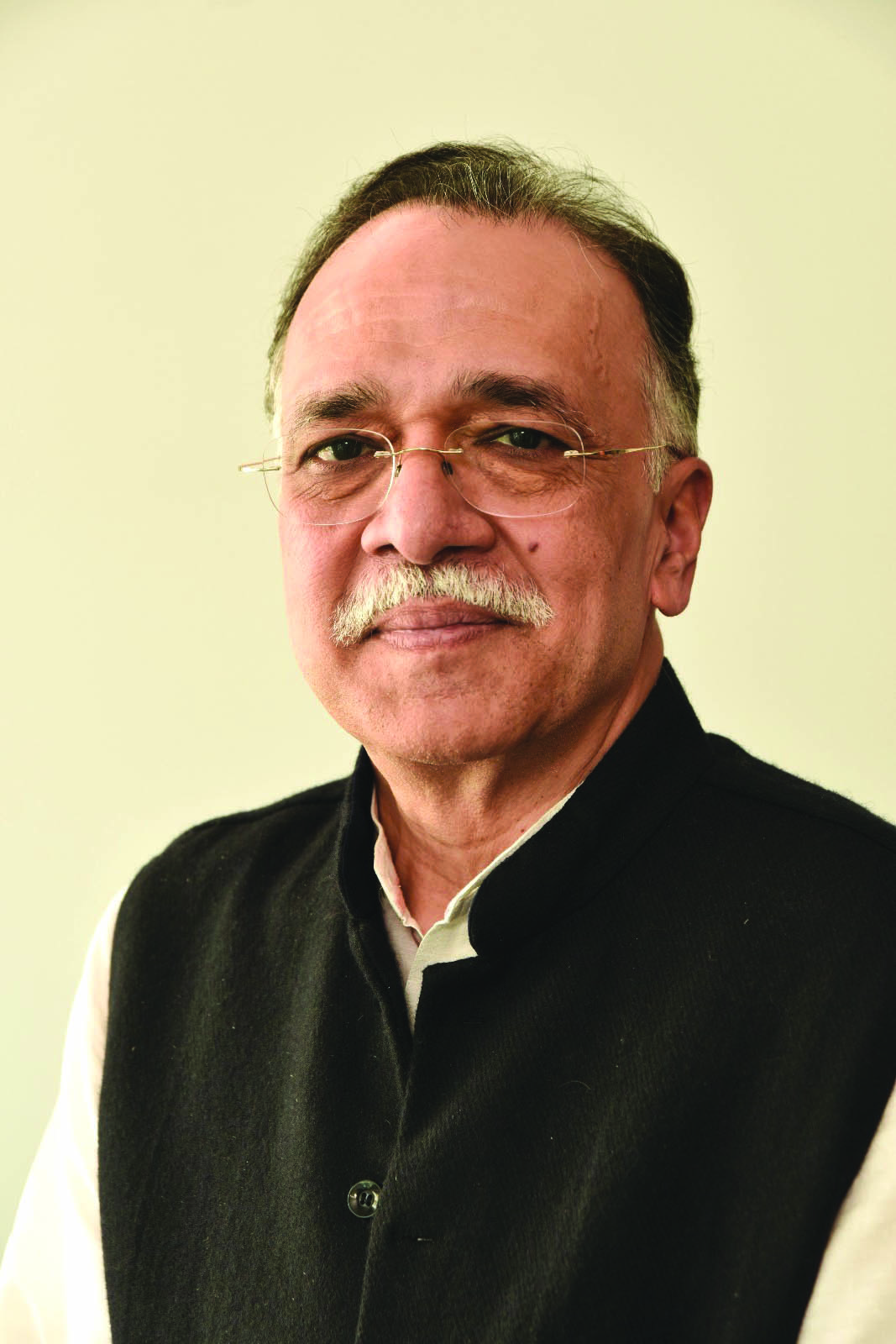 “AI is a gamechanger in education”
“AI is a gamechanger in education”
Pramath Sinha is the founding dean of the blue-chip Indian School of Business, Hyderabad; founder-trustee of Ashoka University, Sonipat; founder of online learning platform Harappa Education (now part of UpGrad), and an AI in education evangelist. Excerpts from an interview:
The prediction is that artificial intelligence (AI) will radically transform education. What can AI do and what are its limits?
Certainly, AI technologies will transform education. There are two fundamental ways in which it will do this. First, every teacher can now have a personal teaching assistant that will inform her in understanding how every student in her class is faring academically. This feedback will enable her to create customised learning plans for every child. AI will also enhance the performance of teachers by sparing them daily administrative jobs and making these routines more efficient. Second, it will help students as a personal tutor to guide their learning in an individualised, personalised manner, respond to questions big and small, while providing instant feedback to course-correct and improve. All this in real time. So, we certainly cannot ignore this technology which is a game changer in education.
What are the major challenges of integrating AI in education?
Understanding AI and being able to use it well is the first big challenge. Just as teachers adopted the technology of electronic boards and presentations in the classroom, educators across the country have to understand, learn and use AI to integrate it effectively in education. This is not a mechanical skill, it is a cognitive skill that requires adaptation. Nor should one assume that AI is an instant negative or that it is an outright threat to teaching. We have to overcome resistance to trying something new. In fact all teachers should be interested in learning this new technology to find out where it works and doesn’t work. So, AI needs to be used by educators, and practice and experience with it will enable them to integrate AI in education.
What are the ethical considerations of using AI in education?
Credibility and trust are serious ethical issues of AI in education. The first challenge is that people think that AI can give all the answers, so why be patient with ‘studying’? Questions relating to original thinking, original work and credit for that work are urgently coming to the fore. Biases and hallucinations are other equally important considerations. AI is based on the data it is trained on. If it is fed information only from certain mainstream contexts, then its output based on that information will be partial and incomplete, skewing educational outcomes in the classroom.
A new genre of AI edtech companies such as AcadAlly has sprung up to accelerate the integration of AI technologies in education. What’s your comment?
Companies such as AcadAlly are catalysts for radical transformation demonstrating how education is delivered and received. Ultimately, principals and teachers need expertise and support to derive the full value of AI in learning and education. As they are focused on enhancing students’ learning outcomes, companies such as AcadAlly play a very important role, being at the forefront of innovation.
How do you see the future of AI in education?
AI is here to enhance learning. Imagine when books first came around. People would have naturally asked how one can learn by reading a book! The first book, or the first set of books, or the first few years of books reaching the masses would have been a similar experience — of doubt, questions and anxieties around what they can do to people and curious minds. Now we know that books enabled people to learn about things that they would never have known about, thus changing learning forever. In the case of AI, we know that it offers vast amounts of information and knowledge that is only a couple of prompts away from us. It is bringing global libraries to our doorstep, wherever we want it.
If we want to learn a new subject, AI can assist us. If we want to create variations of a course tailored for specific learners, AI can guide us. If we want to compare class management models, AI can share comprehensive insights with us in seconds. Through such evolving capabilities, AI enables teachers to pursue adaptive learning in a class full of students with diverse, unique learning styles, needs and preferences. It allows personalisation at scale, which, I believe, is a game-changer in the future of education.
 “AI has immense potential to transform education”
“AI has immense potential to transform education”
Yash Prakash (YA), an engineering postgraduate of Southampton University (UK) and management postgrad of University of Illinois Urbana-Champaign and Ridhi Agarwal (RA), an alumna of the Shri Ram College of Commerce, Delhi and Delhi School of Economics are co-founders of AcadAlly, a deep-tech AI education company. Excerpts from an interview:
Artificial Intelligence (AI) is being heralded as the new wonder technology poised to radically transform education. How real is the possibility of AI revolutionising education?
YA: Artificial intelligence has immense potential to transform education by creating customised learning pathways for every student, automating repetitive administrative tasks of teachers and providing speedy assessment of students learning. This will enable educators to quickly bridge learning gaps, offer customised remediation, and enhanced teacher productivity. However, there are many challenges such as bridging the digital divide in society, maintaining data privacy, and addressing teacher unpreparedness to integrate AI into teaching-learning. The success of AI in transforming education is dependent upon success to leverage it to complement rather than replace traditional pedagogies.
You describe AcadAlly as “the ultimate companion of students driven by AI”. What are the company’s major products?
RA: AcadAlly’s primary objective is to bridge learning gaps and improve student learning outcomes through provision of personalised, data-driven, AI-enabled tech solutions. Our flagship program, the Learning Engine for Assessments and Progress (LEAP) uses AI to diagnose every student’s learning deficit, recommend customised remedial action, and track student progress in real-time. LEAP has demonstrated student learning improvement of 65 percent in partner schools, making it a game-changer in K-12 education.
We also provide personalised AI-generated, gamified content to drive student engagement, detailed analytics dashboards for teachers and school principals to monitor every child’s progress to make informed decisions; and timely updates to parents tracking their children’s academic progress.
Our mission is to empower educators, students, and school managements to collaborate optimally to improve students’ learning outcomes.
How satisfied are you with the progress of the company?
YA: Our progress is deeply fulfilling. Particularly because we can track students’ learning improvements. Since the company launched LEAP in April 2024, over 30 schools including top-ranked ones such as Delhi Public Schools in Bangalore, Mysore, Vadodara, Lucknow, Hyderabad; KR Mangalam World School, Delhi, and Shri Ram Universal School, Ghaziabad have benefited from LEAP. In the short span of six months, AcadAlly has assessed the learning outcomes of over 600,000 children. We also have more than 95 percent retention/renewals for the next year. This demonstrates the trust schools place in our solutions and our ability to drive meaningful change in education.
Our vision is to create customised learning pathways for millions of students and achieve our corporate milestone of transforming AcadAlly into a Rs.1,000 crore enterprise that transforms education through providing cutting-edge AI technologies.
There is widespread fear that AI will replace jobs with a Goldman Sachs estimate indicating that AI could replace 300 million full-time jobs worldwide by 2030. Is the fear that AI will replace teachers warranted?
RA: AI doesn’t replace teachers, it empowers them. It can do repetitive and administrative tasks, allowing educators to focus on what they do best — teaching and mentoring. AI complements human intuition and creativity by providing actionable information to educators, personalised content for every student and tools to improve teaching efficiency. The teacher-student relationship is irreplaceable, as emotional intelligence, guidance, and inspiration cannot be replicated by AI.
There is considerable apprehension among educators that widespread usage of AI programs such as ChatGPT are encouraging plagiarism and hindering development of original, creative thinking. What’s your comment?
RA: AI tools like ChatGPT can be valuable learning aids if used responsibly. Teachers’ focus should be to teach students how to use these tools ethically to enhance their understanding rather than to shortcut the learning process. Schools should develop children’s critical thinking and creativity skills by integrating AI literacy into the curriculum, teach students to critically evaluate AI-generated content and encourage them to use it for exploration rather than as a replacement for original work.
What are your company’s future growth and development plans?
YA: We have set ourselves the target of reaching over 1 million students by 2030; developing AI-powered psychometric tools and expanding value-added services; venturing into international markets, focusing on Southeast Asia and the Middle East and investing in R&D to create cutting-edge AI-driven customised education models to continuously improve students’ learning outcomes. Our objective is to become the preferred education technology partner of K-12 schools, enabling personalised learning from middle school to college.














